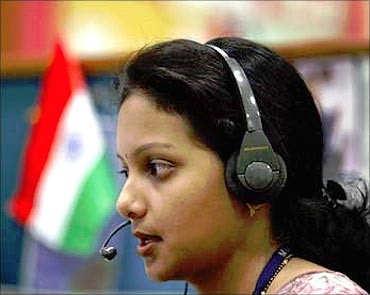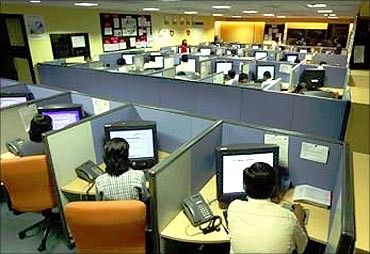 | « Back to article | Print this article |
How to get back to work after a career break
Sangeeta Nawalkar, a marketing and sales professional with a leading media house chose to quit her job in 2001 to focus on raising her two children. But after six years, Nawalkar decided to get back to work.
"Working in media was hectic. I was either missing some important meeting while attend to my kids or was unable to give them enough time due to late-night meetings. It was then that I decided to quit," she said.
But unlike several other working women, who often find it difficult to get back to a professional career after such a long break, Nawalkar was selected by the Tata Groups Second Career Internship Programme.
In 2008-09, the Tata Group started the Tata Second Career Internship Programme (SCIP), calling upon women to take on a second career. As expected the response was overwhelming.
Click NEXT to read more...
How to get back to work after a career break
In the first year SCIP received 2,000 resumes of which 34 were selected for the programme.
In 2009-10, the programme received 5,000 resumes of which 41 were selected. And Satish Pradhan, chief, group HR, Tata group expects that this year they will receive 5,000 or more resumes.
The idea behind SCIP was to tap the huge talent and capability among women professionals who have discontinued work due to various reasons.
The Tata group will provide live business projects for approximately 500 hours of work spread over five to six months.
"The idea behind the programme was to reduce the challenges and barriers for re-entry of women to the professional segment. One of the crucial parts of this programme was to provide these women with a support system that takes care of training, induction and flexibility," said Pradhan.
Click NEXT to read more...
How to get back to work after a career break
Group firms like Tata Power and Tata Capital have absorbed many such candidates. Nawalkar is now Manager, SCIP.
"In the first year we were able to get women only in single digit to join us, in the second year we increased to double digit. But there have been instances where a candidate said they will come back after another year," said Pradhan.
Hindustan Unilever Limited (HUL) is another company that allows its employees (both men and women) to take long career breaks.
Such breaks can be availed for more than twice during the employee's career span and the total duration of the break(s) extends up to five years.
"We have done extensive work to understand points in the career where women are vulnerable and likely to think about a career shift and we ensure that we make that extra effort to ensure that we plan well for the careers of our women managers to help them balance their personal and professional needs at every stage of life," said Leena Nair, executive director, HUL.
Click NEXT to read more...
How to get back to work after a career break
While India Inc has started several initiatives for women like flexi-hours, child-care sabbatical, work from home policy and satellite office policy, among others, there are only a few companies that have addressed the need for a second career option.
Besides, studies have revealed that even these programmes have not been implemented well to get the most of women employees.
According to a study done by Catalyst (commissioned by IBM), most of India Inc (75 per cent) reported having flexible work programs, but many failed to track utilisation of these programmes.
Of the companies offering flexible work programmes, only a few reported greater than 25 per cent utilisation - 32 per cent companies reported greater than 25 per cent utilisation of flexible arrival and departure programs, 11 per cent reported greater than 25 per cent utilisation of telecommuting programs and only sevn per cent reported greater than 25 per cent utilisation of reduced work/part-time work programmes.
According to an Accenture report - 'Reinvent Opportunity: Looking Through a New Lens' - in India women employees were more prone to seek work-life balance (45 per cent).
Click NEXT to read more...
How to get back to work after a career break
The study surveyed 3,400 business executives from medium to large organisations across 29 countries, including 100 from India.
"We realised that at Accenture, Indian women at the mid-management level were leaving more. The reasons would vary from child-birth to spouse shifting to a new city or country, getting married etc. Three years back we started a focused programme for women and since then we have seen a drop in attrition due to these reasons. Rather, among the high-performance senior managers we have achieved zero per cent attrition," said Rekha M Menon, executive director, Accenture India.
Similarly, HCL Technologies has started a focused recruitment drive for women and is also planning to launch a website for its women employees.
Click NEXT to read more...
How to get back to work after a career break
"The idea behind the initiative is to rebalance the work place and work place situation," said Srimathi Sivashankar, principal officer diversity and sustainability, HCL Technologies.
This is not all. The company will also come out with a programme that will allow women employees to resume work after a long break.
"It is still premature to talk about this but we are thinking along these lines. Before that we need to get the support systems in place," said Sivashankar.






